Is this my Syria?
A former Syrian radio show host currently residing in the U.S. blogs to Syrians and world leaders alike to put an end to the crisis and to create a new and better Syria.

A former Syrian radio show host currently residing in the U.S. blogs to Syrians and world leaders alike to put an end to the crisis and to create a new and better Syria.
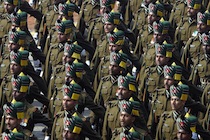 Courtesy: Wikimedia Commons/Agência Brasil
Courtesy: Wikimedia Commons/Agência Brasil
The Armed Forces Special Powers Act (AFSPA) confers special powers upon the Indian army in disturbed areas, and legitimizes any actions they may take. The law, however, has been misinterpreted by many. Are calls for the revocation of the AFSPA warranted or misplaced?
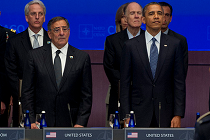 Courtesy: Secretary of Defense/Flickr
Courtesy: Secretary of Defense/Flickr
Pakistan’s refusal to re-open NATO supply routes into Afghanistan has made the country an instant pariah in the U.S. at the NATO Summit. The communiqué released confirms a withdrawal of 130,000 troops by as early as mid-2013. Can the remaining soldiers help maintain peace when a force much larger could not?
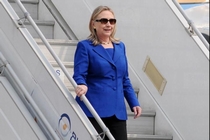 Courtesy: Ministry of External Affairs, India
Courtesy: Ministry of External Affairs, India
U.S. Secretary of State Hillary Clinton's recent visit to China, India, and Bangladesh is keeping with the U.S. pivot to Asia. The choice of countries has strategic significance for the U.S., where India is flagged as balancing the rise of China, and Bangladesh as a strategic base in the Bay of Bengal.
 Courtesy: U.S. Department of Defense
Courtesy: U.S. Department of Defense
An important take-away from the preliminary pact reached by Kabul and Washington is that unlike the 1990s, the Americans are not just packing their bags and leaving. This is good news in terms of regional stability, and the upcoming NATO summit may answer some questions this draft agreement raises.
What are the implications for India if Iran is attacked? How effective has the response been by gulf nations to their own protests? Ambassador Talmiz Ahmad, India’s former Ambassador to Saudi Arabia, discusses the dynamics of West Asia with Gateway House’s Alisha Pinto and Azadeh Pourzand.
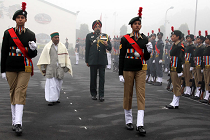 Courtesy: Ministry of Defence, India
Courtesy: Ministry of Defence, India
India must revisit the need for a unified command structure, to effectively use the enormous combat power it is developing at such astronomical cost. A balanced force-restructuring based on operational needs can enable the armed forces to project itself as a single, viable, effective war machine.
The scope for any process on nuclear talks with Iran to founder on distrust, misunderstanding and political in-fighting in both Tehran and Washington remains formidable. Equally disturbing are the wider political realities. Can the upcoming talks in Istanbul launch a process that can, over time, lead to agreement?
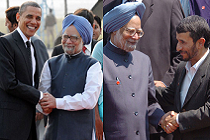 Courtesy: PMO
Courtesy: PMO
Although political discourse around Iranian sanctions is binary and stark in Washington, the reality of India's actions within its bilateral framework with Iran is complex. India is engaged in an excruciating tightrope walk, and has to defend its choices and compulsions with ardour.
Given the immediacy of rising tensions around Iran’s nuclear programme, what can India and the U.S. do to resolve the issue? Gateway House’s Manjeet Kripalani talks to Ambassador Frank Wisner about the possibilities of a strike against Iran and its effects on the India-U.S. relationship.